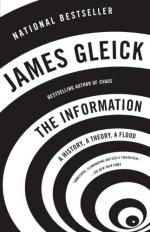
|
| Name: _________________________ | Period: ___________________ |
This quiz consists of 5 multiple choice and 5 short answer questions through Chapter 9.
Multiple Choice Questions
1. Who suggested that the meaning of the word "entropy" mean the opposite of what it was originally, to describe the part of energy which was available to be converted into work?
(a) Christian Doppler.
(b) Isaac Newton.
(c) James Clerk Maxwell.
(d) Albert Einstein.
2. Who developed a system of logic that would not have been possible without writing?
(a) Aristotle.
(b) Plato.
(c) Euripedes.
(d) Socrates.
3. A new interest in what pursuit arose following the rise of the telegraph?
(a) The telephone.
(b) Cryptography.
(c) Computer Science.
(d) Writing.
4. The telegraph invented by Samuel Morse and Alfred Vail was based on what function?
(a) Logarithms.
(b) Opening and closing the electric circuit.
(c) The Morse Code.
(d) Capturing electrical impulses.
5. Entropy is the physical equivalent of what state?
(a) Possibility.
(b) Normality.
(c) Sequencing.
(d) Probability.
Short Answer Questions
1. What development was the last stage of writing?
2. What type of lists did Babbage create about livestock, fabric, letter combinations in various languages and other facts?
3. What did Shannon call the units of information that he was able to measure in a message?
4. What results when a closed system's temperature evens out?
5. What were the interests of Charles Babbage, a brilliant Englishman who lived in the 19th century?
|
This section contains 235 words (approx. 1 page at 300 words per page) |

|




